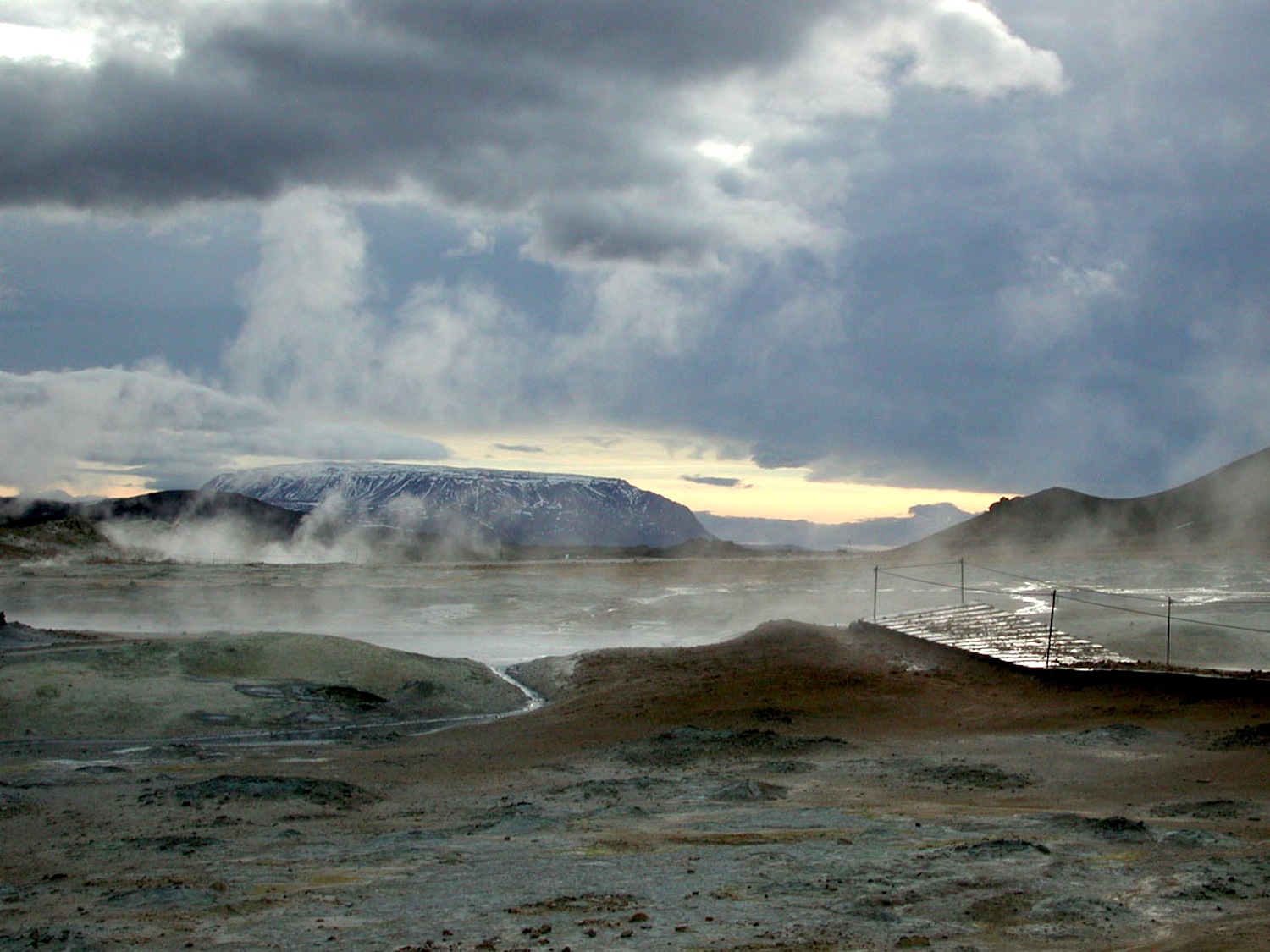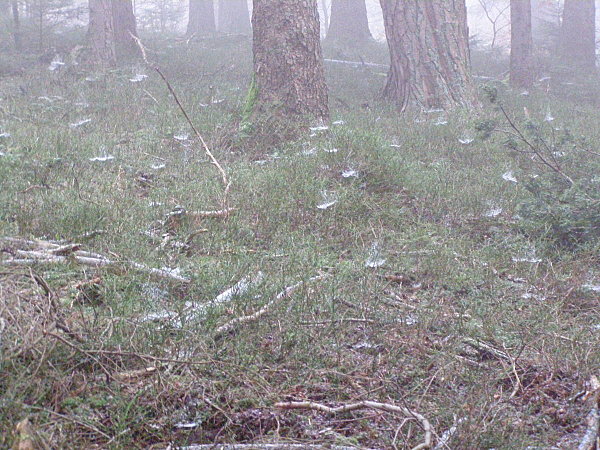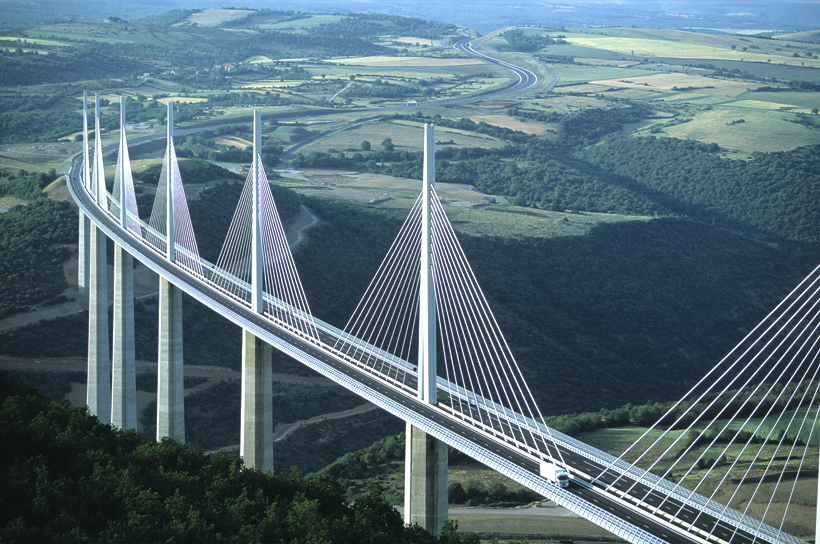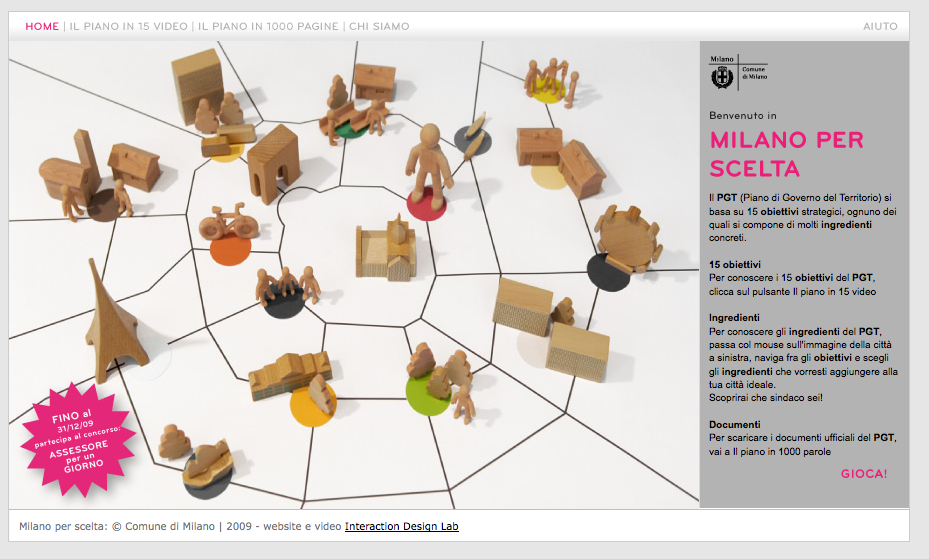October 19, 2011
Something special is happening in France. A nationwide campaign will be launched next week by the Colibris movement for the 2012 Presidential Elections – but without a charismatic leader.
September 30, 2011
A splendid new book from Monacelli Press marks the coming of age of urban agriculture – at least for the design world. Carrot City: Creating Places for Urban Agriculture is a timely reflection on design and urban food systems, and on [continue …]
This text touches on: 'energy intensity in health systems' , 'peak fat' , '5% health in Cuba', 'the Quantified Self' , 'Design grammars for health and care' , 'doing what we know we need to do'.
September 2, 2011
“Who needs oil when you have rain?” The ad for Landsvirkjun, Iceland’s national energy company, dominates this month’s Icelandair magazine. It sits alongside other ads that feature wild spaces, rugged outdoor clothing, and all-round natural purity. The message is not disguised: Iceland is blessed by massive amounts of clean energy.
The [continue …]
August 9, 2011
A new book by Alex Prud’homme called The Ripple Effect addresses the “vast and desperately serious subject” of water.The author does not hold back: all the world’s water problems are here. The sewage, fertilizers, industrial chemicals, plastics, paint, drugs, and hand soap, among other [continue …]
August 2, 2011
When I arrived at Angsbacka, the site in Sweden of last weekend’s first Future Perfect festival, an alarming array of leaflets was on offer in the foyer : ‘Shamanic De-Armouring’; ‘How To UpGreat Your Life’ or ‘Reach The Temple of your Inner Beauty’; [continue …]July 16, 2011
The image above is a Piezzoelectric skin that could be attached to vertical surfaces on buildings.The skin would generate electricity as wind moved across its tiny hairs. Wind Skin, as the project is called, so enchanted jurors at last week’s [continue …]July 14, 2011
If you’re in Paris before 24 July a spectacular exhibition called The Fertile City: Towards An Urban Nature is well worth a visit.The show’s OTT poster does not over-promise. The exhibition explores nature in the city from multiple perspectives: historical, social, cultural, botanical, ecological. Two [continue …]
July 11, 2011
Today seems to be the day when, once a year in this part of France, every spider in the region spins her best possible web at the same moment.
Early in the morning, when covered in dew, the whole landscape seems to be dotted with uncountable millions of these amazing structures.
Now [continue …]
June 27, 2011
Last week I was taught how to sharpen our kitchen knives by a wood carver, Howard Raybould, who’s been honing his technique for 30 years. It’s the most useful skill I’ve acquired since learning how to ride a bike.
Howard arrived bearing: a wooden board; a [continue …]June 27, 2011
The day after I celebrated his Kickstarter success with Tyler Caruso, co-founder of Seeing Green, which is about measuring the value of urban agriculture, I read a fascinating piece by Simon Kuper in the FT about the use of data to analyse every tiny aspect of a [continue …]
June 23, 2011
When Jimmy Carbone, co-creator of The Good Beer Seal, was considering running for mayor of his old hometown in Haverhill, Massachusetts, he began to ponder possible new uses for industrial buildings that had fallen in to disuse. Could small resource-sharing breweries be a centerpiece of [continue …]June 21, 2011
[Stop Press: Polydome has been shortlisted for the 2012 Buckminster Fukller Challenge]A few years ago urban farming in developed cities was a fringe topic that few designers or architects thought much about. There were exceptions: we tried hard [but failed] to build a prototype of Natalie Jeremijenko’s Urban Space [continue …]
June 20, 2011
This was a first for me: witnessing first-hand a Kickstarter project cross the line and go live.
The happy guy with the phone [in Claire Hartten’s garden in Brooklyn] is Tyler Caruso, joint founder [with Erik Facteau] of Seeing Green: The Value of Urban Agriculture.
[continue …]
June 14, 2011
[The following is based on the author’s keynote at the Buckminster Fuller Challenge awards in New York on 8 June. He was also on the 2010 jury of the Challenge.] We will not transition successfully to a restorative economy until systems thinking [continue …]
May 31, 2011
It’s hard not to be impressed by the Millau Viaduct that’s down the road from where I live in France.
The tallest bridge in the world boasts an eight-span steel roadway, is supported supported by seven huge concrete pylons, and weighs 36,000 tonnes.
But consider this: The great pyramid in Egypt weighs [continue …]
Built in 1978 by German steel company Krupp, the giant Bagger 288 was designed for open mining trenching. It took more than five years and $100 million to design and manufacture. It can move more than 76,000 cubic meters (~2,700,000 [continue …]May 26, 2011
Last weekend the first xskool class took place at West Lexham in England.
As previously reported, xskool at this moment is more a question, than a project: Does the world need a professional development program to support designers, architects and [continue …]May 9, 2011
Whenever electricity is transmitted from one place to another a certain amount is simply lost. In older grids, energy is wasted overcoming resistance in the lines themselves. In extremely high voltage lines, so-called corona discharge [continue …]May 5, 2011
[A new book from the Dutch publisher Bis, Open Design Now, includes essays, cases and visuals on various issues of Open Design. The book contains practical guidelines for designers, design educators and policy makers to get started with Open Design. It [continue …]
Two images have preoccupied me in recent days.
The first one [below] was taken in a lounge at Paris airport. I remember being struck by the intense design effort that had been made to create a controlled and insulated environment. On the tv screen were images of the popular revolt [continue …]April 29, 2011
I’ve written and spoken quite a lot in recent times about the changes designs institutions need to make. Sometimes, I was even asked to do so.
Examples include a talk I did in Delhi earlier this year, What kind Of [continue …]April 26, 2011
The skyline of Pittsburgh, once America’s Steel City, is now dominated by towers belonging to two local giants of ‘Eds & Meds’ – education, and healthcare. Does this mean the city has successfully grown itself a resilient new economy?
If architectural [continue …]April 18, 2011
Twelve-year-old childen in Rotterdam have never known a time when their city was not being rebuilt around them. And because they know no better, or at least no different, they are not much daunted by the huge scale of the projects [continue …]Dr Martin Schuepbach from Dallas, Texas, has the following plan, concerning natural gas, for the Cevennes region of France, where I live [below]:
First, he will take millions of gallons of our clean mountain water. To this he will add a cocktail of [continue …]
April 8, 2011
Up to 1,500 litres of that water are needed to grow enough biofuels to move one car ten kilometres. 2,000 litres are needed a day to feed each one of us. It takes 140 litres of water to grow enough [continue …]
Ridley Scott’s film Blade Runner, made in 1982, portrays a dystopian Los Angeles as it might be in 2019. In just eight years from now we are due to discover find out whether or not the film was an accurate prediction.Do [continue …]
March 27, 2011
The Basque city of Bilbao was a pioneer in Europe in the use of showcase cultural buildings as a trigger for urban regeneration. Just a generation ago the city’s waterfront was an industrial port. Today, in addition to the Guggenheim itself, [continue …]March 20, 2011
They say that the last days of Rome were culturally rich – and the same seems to be the case in our own times.
Choreographer Valerie Green and Dance Entropy, a New York City-based experimental dance troupe, will shortly premier a new work, Rise and Fall, [continue …]March 20, 2011
The Start-Up Kids is a documentary about young entrepreneurs who have founded web and media startups in the US and Europe. Made by two young Icelandic women, it contains interviews with tech-leaders of today and tomorrow.
The founders of Dropbox, Vimeo, Flickr, WordPress, Posterous and many others talk about how [continue …]March 11, 2011
A premise of Joseph Giacomin’s new book Thermal is that global warming is hard to ignore when you view the world through thermal eyes.
Hard, but not impossible, to ignore. We humans are skilful evaders of uncomfortable truths.
The premise of the author’s reseach group [continue …]March 1, 2011
“Work faster, get time for life.” I just got back from a short trip to India where this insane slogan adorned a poster at a bus stop.
It pretty much sums up a febrile mood in Delhi where it was announced [continue …]February 21, 2011
Global design education in a nasty bind. There are hints of the dot com boom a decade ago. New products [courses] have been launched at a frantic rate in recent years. New buildings are springing up. Global aggregators have even started buying design schools; an obscure American multinational, Laureate Universities, [continue …]
A decision by the Indian government set up four new National Institutes of Design [NIDs] in the country has sparked a lively debate about the kinds of design they should teach.
An influential group of design thought-leaders has launched a campaign called VisionFirst that calls for a “rigorous co-creation process to [continue …]February 18, 2011
First published in Design Observer.[Introduction] As the global crisis unfolds, interest in alternative economic and social models is growing – and with it, attention to what we might learn from Africa.
Most of us in the North are badly informed about [continue …]February 13, 2011
On of the reasons we underestimate the sheer physical mass of our power and information networks is that they’re hidden from view. But not in Bangkok. The German photographer Thomas Kalak has spent ten years decade capturing images like these.They feature in an [continue …]February 12, 2011
An interesting rebound effect of public spending cuts in the UK is that the UK Design Council and CABE (Commission for Architecture and the Built Environment) are to merge. The move brings UK policy for design, architecture and public space together in a single [continue …]February 9, 2011
I dislike the word ‘glocal’. It’s an ugly word used by high altitude thinkers to add zest to another word – local – that they find tedious on its own.
I also dislike the word ‘creative’. It tends to be used by uncreative people to describe [continue …]- [First published at Design Observer]
Unsettling patches of metallic eczema have started appearing on former vineyards where I live in the south of France. They turn out to be solar farms, the first spores of a clean energy revolution that will soon cover the land. [continue …] February 1, 2011
A study by Transportation Alternatives found that up to 45 percent of traffic in an area of Brooklyn was caused by cars circling the streets looking for parking. And in 2006, UCLA professor of urban planning Donald Shoup calculated that, within a year, vehicles [continue …]January 22, 2011
A decision by the Indian government set up four new National Institutes of Design [NIDs] in the country has sparked a lively debate about the kinds of design they should teach.
An influential group of design thought-leaders has launched a campaign called VisionFirst that calls for a [continue …]
January 15, 2011
Milan has approved a new Territorial Government Plan (Piano di Governo del Territorio] in which public services, and the way they are planned, are at the centre of the whole project.
Since 2008, Id-lab has worked alongside the City Administration to change the way Milan thinks about urban development. [continue …]January 3, 2011
A lifetime ago, during a six month journey in Afghanistan, I passed the spectacular site of Bamiyan, shown in this photograph, on my way into the Hindu Kush.This was long before the three enormous statues of Buddha, carved into the sides of cliffs, were destroyed [continue …]
December 29, 2010
Totally thrilling news has reached me from the Netherlands: my book Plan B: Ontwerpen in een Complexe Wereld [Plan B: Designing In A Complex World] has been selected by the influential magazine de Architect as their best architecture book of the year. I [continue …]December 29, 2010
UnBox, a three day festival in Delhi, in February, brings together creative collectives from around India. One of these groups, Clay Futures, will brainstorm scenarios to do with sustainable, medicinal, and air filtering bentonite – hence the picture above.
Doors of Perception’s role in [continue …]December 19, 2010
If it is true that the world’s information base is doubling in size every 11 hours then a lot of eco-design information, that could be valuable for professionals, presumably goes un-noticed, and thus unused.
In the past month alone, for example, I’ve come across two paper-based design tools that would [continue …]
December 6, 2010
Italians are the leading consumers of bottled water in the world. They drink more than 40 gallons per person annually. Among many ecocidal by-products: until recently, discarded plastic bottles littered canals all over Venice, a world heritage site.
Appeals to civic duty came to naught. Exhortation and public education proved ineffective [continue …]December 1, 2010
and neither are these:
Well I know they *look* like objects, but that’s because you have not read a new book called Nonobject about the design philosophy of Branko Lukic.
Branko’s collaborator on the book, Barry Katz, cites respected commentators in [continue …]November 25, 2010
Ever since we organised Doors of Perception 3 on the theme “info-eco” in 1995, we’ve been preoccupied by the dilemma of environmental data. Our world is awash in eco information, we concluded then, but starved [continue …]November 15, 2010
Each year 3.5 million Americans experience homelessness and on any given night, over 700,000 people are without a roof. In Houston alone, some 15,000 homeless people live in abandoned buildings, on cardboard makeshift beds, under freeways, and in shelters throughout the city.
In Western [continue …]
Homeadmin2023-08-09T18:07:42+00:00
 Something special is happening in France. A nationwide campaign will be launched next week by the Colibris movement for the 2012 Presidential Elections – but without a charismatic leader.
Something special is happening in France. A nationwide campaign will be launched next week by the Colibris movement for the 2012 Presidential Elections – but without a charismatic leader.









 [The following is based on the author’s keynote at the Buckminster Fuller Challenge awards in New York on 8 June. He was also on the 2010 jury of the Challenge.]
We will not transition successfully to a restorative economy until systems thinking
[The following is based on the author’s keynote at the Buckminster Fuller Challenge awards in New York on 8 June. He was also on the 2010 jury of the Challenge.]
We will not transition successfully to a restorative economy until systems thinking



 [A new book from the Dutch publisher Bis,
[A new book from the Dutch publisher Bis, 























